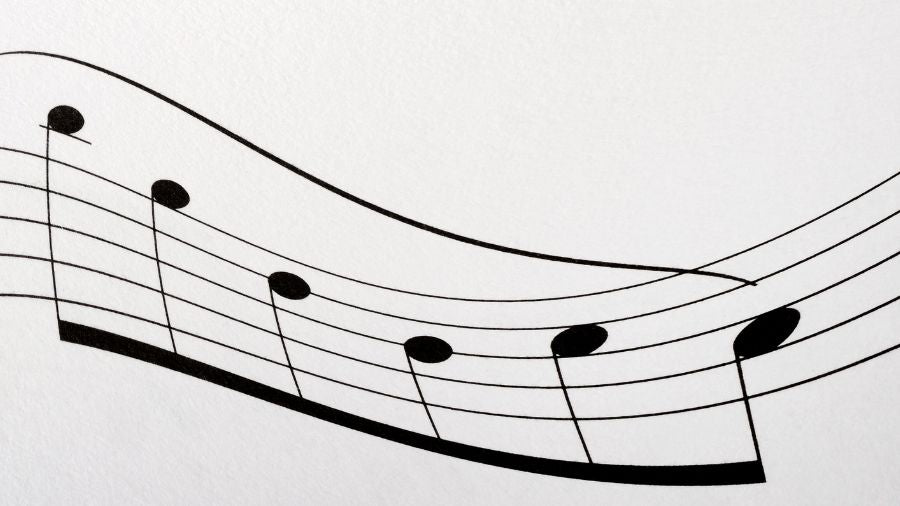In a dramatic turn of events, Universal Music Group (UMG), the music giant behind artists like Taylor Swift, The Weeknd, and Drake, is set to remove its entire song catalogue from TikTok. This unprecedented move comes after failed negotiations over issues such as artist compensation and concerns about using artificial intelligence (AI). As the deadline approaches on January 31, the clash between these entertainment giants has stirred up controversy and highlighted the challenges of navigating the evolving digital landscape.
The Breakdown
Universal Music accuses TikTok of "bullying" tactics and attempting to secure a deal that would pay artists a significantly lower rate than other social media platforms. In an open letter, UMG expressed its concerns about fair compensation for artists, the potential risks associated with AI-generated music, and the overall online safety of creators.
TikTok, in response, fired back at Universal, accusing the music giant of prioritizing greed over the interests of artists. The social media platform disputes Universal's claims and labels their narrative false. The tension between the two companies has escalated, with both sides firmly holding their ground on the negotiating table.
This clash marks the first time Universal Music has decided to pull its songs from a tech platform. The decision underscores the growing importance of fair compensation for artists in the digital age and the challenges associated with navigating the evolving landscape of AI-generated content.
Financial Impact
Despite TikTok's immense popularity, with over a billion users, it contributes only 1% to Universal's total revenue. This statistic raises questions about the economic significance of TikTok to major music labels and whether such platforms are undervaluing the content they showcase.
Warner Music's Renewal
Amid this controversy, it's worth noting that Warner Music, the third-largest record company, recently renewed its deal with TikTok. This contrast highlights the varying approaches and outcomes major music labels are experiencing in their negotiations with social media platforms.
As the deadline for the contract expiration looms, the Universal Music vs. TikTok showdown brings to light the complexities and challenges faced by artists, music labels, and digital platforms in the ever-evolving entertainment landscape. The outcome of this dispute could set a precedent for future negotiations and shed light on the value of music in the digital age.
Reasons behind Universal Music's Decision
Universal Music, one of the world's leading music labels, has boldly moved in the digital landscape. In a surprising announcement, the company revealed its decision to remove its songs from the popular social media platform TikTok. With this move, Universal Music joins a growing list of major music labels that have expressed concerns over licensing and royalty issues on the platform.
TikTok, known for its short-form videos and music-driven content, has become a cultural phenomenon, attracting millions of users worldwide. However, copyright infringement has been a recurring issue on the platform, leaving labels and artists grappling with the unauthorized use of their music. Universal Music's decision to pull its songs from TikTok signals a significant shift in the relationship between music labels and social media platforms.
Universal Music's decision to remove its songs from TikTok stems from several vital reasons. Firstly, the platform has faced criticism for its handling of copyright infringement. With millions of users creating and sharing videos that contain copyrighted music and do not have the correct licensing or permission, Universal Music and other labels have struggled to protect their artists' rights and receive fair compensation.
Additionally, Universal Music has expressed concerns over the financial aspects of its partnership with TikTok. While the platform has gained immense popularity, the label feels it has not received adequate compensation for using its songs. This lack of transparency and fair remuneration has prompted Universal Music to reconsider its involvement with TikTok.
Furthermore, Universal Music aims to communicate to other social media platforms about respecting copyright and intellectual property. By taking a stand against TikTok, the label hopes to raise awareness and encourage stricter regulations and comprehensive licensing agreements across the industry.
Impact of Universal Music's Decision on TikTok Users
Universal Music's decision to remove its songs from TikTok will undoubtedly significantly impact the platform's users. TikTok has become synonymous with music, with users relying on the vast library of songs to create engaging and entertaining content. Without Universal Music's extensive catalogue, users will have to find alternative sources for their favourite songs.
This move may lead to a decline in the overall popularity of TikTok, as users may seek out other platforms that offer a more comprehensive selection of music. Additionally, content creators relying heavily on Universal Music's songs may experience a decrease in engagement and reach as their videos lose the familiar soundtracks that once attracted viewers.
However, this decision also opens opportunities for emerging artists and independent labels. With Universal Music's absence, TikTok users may discover and promote lesser-known songs and artists, contributing to a more diverse and inclusive music ecosystem on the platform.
Alternatives for TikTok Users to Access Universal Music Songs
While Universal Music's departure from TikTok may disappoint users, alternative ways exist for them to access the label's songs. One option is exploring other social media platforms with licensing agreements with Universal Music, such as Instagram and Facebook. These platforms offer similar video-sharing capabilities and a wide range of music options.
Additionally, users can turn to streaming platforms like Spotify, Apple Music, and YouTube Music to listen to Universal Music's extensive catalogue. These platforms provide an enjoyable music listening experience, allowing users to discover new artists, create personalised playlists, and enjoy high-quality audio.
Furthermore, Universal Music's decision to remove its songs from TikTok may prompt the platform to negotiate with the label and address the licensing and royalty concerns. If TikTok can agree with Universal Music and other major labels, users may once again have access to their favourite songs on the platform.
Potential Consequences for TikTok as a Platform
Universal Music's decision to pull its songs from TikTok could have significant consequences for the platform. Firstly, it may lead to losing credibility and trust among users and content creators. With one of the world's most prominent music labels distancing itself from TikTok, other users and labels may question the platform's commitment to protecting artists' rights and ensuring fair compensation.
Moreover, this move could hinder TikTok's growth and expansion into new markets. Music is a fundamental part of the platform's appeal. Without a robust library of songs from major labels like Universal Music, TikTok may struggle to attract new users and retain its existing audience.
Additionally, this decision may affect TikTok's relationships with other industries, such as advertising and influencer marketing. Brands and marketers often leverage popular songs on the platform to create engaging content and promote their products. With Universal Music's absence, advertisers may need to rethink their strategies and explore alternative platforms that offer a broader range of music options.
Universal Music's Stance on Copyright Infringement
Universal Music's decision to remove its songs from TikTok reflects its commitment to combating copyright infringement and piracy. The label has long been at the forefront of protecting artists' rights and ensuring they receive fair compensation for their creative work.
By taking a stand against TikTok, Universal Music aims to increase awareness of the issues faced by the music industry in the digital age. The unauthorized use of copyrighted music undermines artists' livelihoods and devalues their work. Universal Music believes platforms like TikTok must take more robust measures to prevent copyright infringement and collaborate with music labels to create a fair and sustainable ecosystem.
The Future of Music Licensing on Social Media Platforms
Universal Music's decision to remove its songs from TikTok highlights the need for a more comprehensive approach to music licensing on social media platforms. As digital media evolves, platforms must establish clear guidelines and licensing agreements that protect artists' rights and ensure fair compensation.
Moving forward, social media platforms should work closely with music labels to develop innovative solutions that benefit artists and users. This could involve implementing advanced content recognition technology to detect copyrighted music and provide proper attribution and compensation. Furthermore, platforms should actively promote and support emerging artists, fostering a more diverse and inclusive music ecosystem.
How this Decision May Affect Other Music Labels and Streaming Platforms
Universal Music's decision to remove its songs from TikTok could ripple effect on other music labels and streaming platforms. If more labels follow suit and pull their songs from TikTok, it may significantly impact the platform's music library and user experience.
On the other hand, streaming platforms may see an increase in user engagement and subscriptions as TikTok users seek alternative ways to access their favourite songs. This shift in behaviour could lead to new partnerships and collaborations between streaming platforms and music labels as they strive to cater to the evolving needs of music consumers.
Possible Implications for TikTok's Relationships
Universal Music's departure from TikTok raises questions about the platform's relationship with other industries, such as film and television. With music playing a crucial role in these industries, content creators and producers often rely on popular songs to enhance their storytelling. If TikTok fails to address significant labels' licensing and royalty concerns, it may face challenges in establishing partnerships with other creative industries.
Furthermore, advertisers and brands may become more cautious about associating their products with TikTok if the platform does not demonstrate a solid commitment to protecting artists' rights and ensuring fair compensation. This might lead to a decline in advertising revenue and limit TikTok's ability to monetize its user base effectively.
Conclusion and Final Thoughts on the Universal Music-TikTok Controversy
Universal Music's decision to remove its songs from TikTok represents a significant development in the ongoing battle against copyright infringement and the protection of artists' rights. This move highlights the need for stricter regulations, comprehensive licensing agreements, and increased collaboration between music labels and social media platforms.
While this decision may disappoint TikTok users in the short term, it also presents an opportunity for the platform to address Universal Music's and other labels' concerns. By working closely with music industry stakeholders, TikTok can create an environment that respects IP and ensures fair compensation for artists.
The Universal Music-TikTok controversy serves as a reminder of the complex relationship between music labels, streaming platforms, and social media. As the music industry continues to navigate the digital age, it is essential for all parties involved to find common ground and strive for a sustainable and thriving music ecosystem. We can only create an environment that supports artists, rewards creativity, and fosters a vibrant music culture online through collaboration and innovation.












